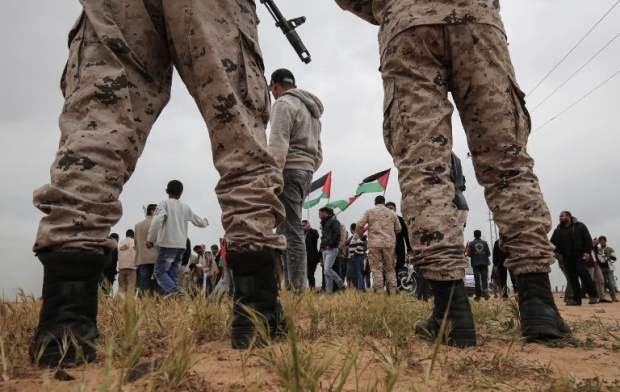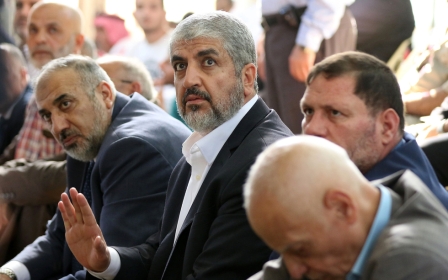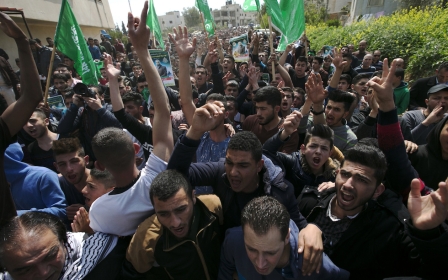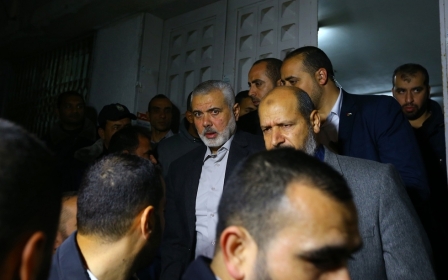Hamas considers revenge after commander killed, analysts say
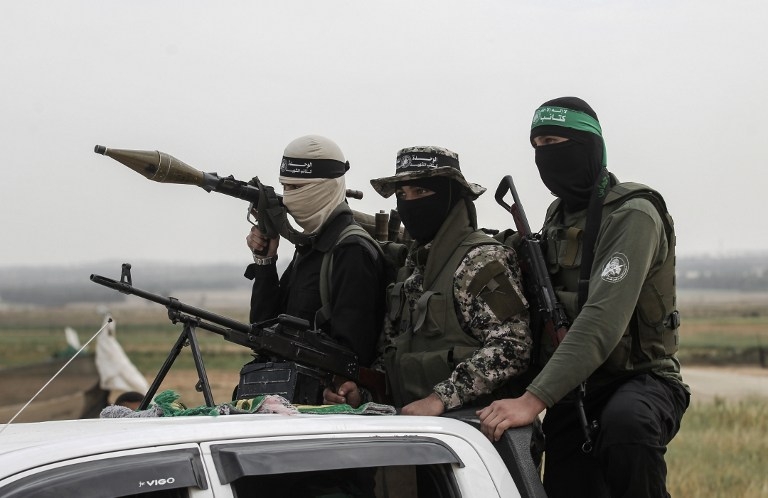
After openly accusing Israel of assassinating a key military commander near his Gaza home, experts agree that Palestinian militant group Hamas will want to retaliate. The question is when and where?
Israeli and Palestinian experts both said Hamas would seek to avenge the killing of Mazen Faqha, 38, but from a distance.
A commander in Hamas's armed wing, Faqha was shot four times near his home on March 24 in what appears to have been a meticulously planned assassination.
Hamas said the shooting, which was allegedly carried out with silencers, with the body found several hours later, bore the hallmark of Israeli intelligence agency Mossad.
Other possibilities exist - an inside job by Hamas rivals or other Islamist groups - but Israel is the obvious suspect.
It accused Faqha of being the brain behind several deadly suicide bombings during the second intifada, or uprising, in the early 2000s.
Israel has remained silent but several Hamas figures have been assassinated by Israel in the past, including founder Sheikh Ahmed Yassin.
By killing him in Hamas-run Gaza, where no Israelis are allowed to enter, Israel would be sending a clear message it can reach its enemy anywhere.
Hamas's potential responses are restricted by its wariness to spark a full confrontation from Gaza, with the impoverished enclave still not recovered from three wars since 2008.
The Islamist group could seek to strike inside Israel itself or in the West Bank, occupied by the Israel and separated geographically from Gaza by Israeli territory.
Hamas has previously responded by firing rockets into Israel, but has chosen not to immediately this time, noted Mustafa al-Saouaf, former editor-in-chief of the Hamas-linked Palestine newspaper.
In the streets of Gaza, giant posters show Faqha with a masked fighter from Hamas's armed wing.
Videos on Palestinian social networks show Israeli ministers and officials in the crosshairs of guns. "We harvest what we sow," they read in Arabic and Hebrew.
The movement has been careful not to spell out its intentions, with Yahya Sinwar, a military leader recently elected to head Hamas in Gaza, remaining silent.
His appointment in February was interpreted by many analysts as indicating that the military wing was in the ascendancy over the political inside Hamas.
The Islamist movement may be deliberately remaining quiet to cause "real anxiety in Israel" as they "do not understand what Hamas wants and can do", Saouaf said.
Rules of the game
Hamas can open "direct confrontations, return to suicide attacks or attempt to assassinate a political or military figure," Saouaf added.
Hamza Abu Shanab, an expert on Palestinian movements, said the most likely response would come in the West Bank as it was a "possible front" for confrontation.
More than 400,000 Israeli settlers live in the West Bank, while Israelis have kept out of the Gaza Strip since 2005.
Mukhaimer Abu Saada, a political analyst in Gaza, said Hamas was following the example of Lebanese militant movement Hezbollah, which when attacked by Israel says "they will decide when and how they want to respond".
On the Israeli side, experts said they felt the "rules of the game" were changing.
Intelligence specialist Yossi Melman said in the Maariv newspaper that if Israel was indeed behind the killing. it would "point to a change in approach".
"If it indeed has succeeded in assassinating Hamas commanders or experts without leaving a trace of its fingerprints - be that in Gaza or abroad - that means Israel has decided to adopt a more offensive stance."
By keeping silent instead of claiming assassinations as it has in the past, Israel is "leaving it to Hamas to exercise restraint", the leftwing Haaretz said.
Little information about the investigation has seeped out.
Unusually, Hamas temporarily closed the only crossing point for people from Gaza into Israel, in an apparent attempt to prevent the assassins escaping.
Gaza's attorney general has banned reporting about the case, but security sources said around 10 people had been arrested or interrogated in connection with the murder.
New MEE newsletter: Jerusalem Dispatch
Sign up to get the latest insights and analysis on Israel-Palestine, alongside Turkey Unpacked and other MEE newsletters
Middle East Eye delivers independent and unrivalled coverage and analysis of the Middle East, North Africa and beyond. To learn more about republishing this content and the associated fees, please fill out this form. More about MEE can be found here.


